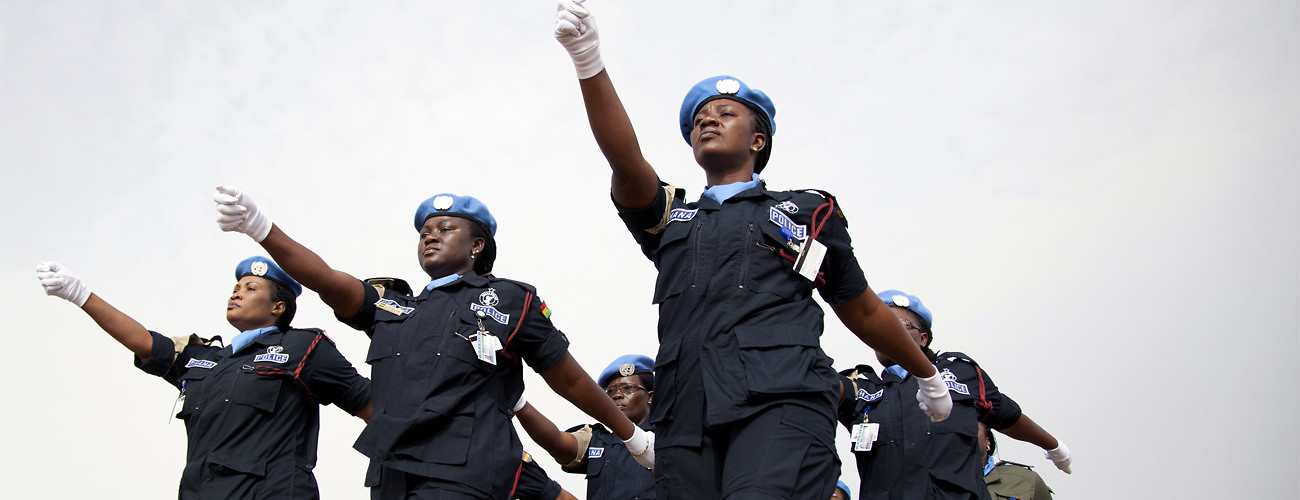Police women at the UNAMID commemoration of the International Day of United Nations Peacekeepers in El Fasher on May 29, 2011. (/ UNAMID/Albert Gonzalez Farran )
The success or failure of a UN peacekeeping operation is partly determined by the effectiveness of its individual peacekeepers. Yet the UN’s training strategy for peacekeepers remains at an embryonic stage. Systematic performance indicators to evaluate UN peacekeepers have yet to be implemented. And while the number of national, regional, and international centers for training UN peacekeepers has increased, greater coordination is needed to produce common standards and ensure that those who are trained actually deploy on UN missions.
These are the findings of a new IPI policy paper, which examines the United Nations’ and member states’ efforts to train UN peacekeepers. It includes a case study on one prominent international training center: the Center of Excellence for Stability Police Units in Italy.
The author finds that more needs to be done to ensure that UN peacekeeping operations have access to the right people with the right skills. He makes a number of recommendations to help the UN, member states, and training centers to realize this goal, including the following:
· Develop joint methodologies for evaluating the readiness of military contingents and an independent mechanism for pre-deployment evaluation of skills and knowledge.
· Incorporate minimum UN training standards into curricula in national training institutions.
· Provide official UN recognition of high-quality training institutions and their curricula.








